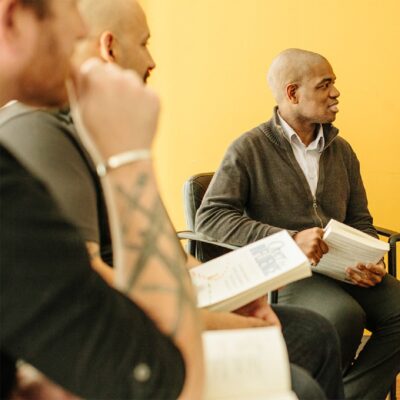People diagnosed with HIV today have dozens of treatment options, including some medications you take only once a day.
START TREATMENT EARLY
As soon as you test positive, the first thing to do–even if you don’t feel sick–is find a medical provider who is has plenty of experience treating HIV.
People are able to best maintain their health the sooner they start HIV medications after being diagnosed. The sooner you start taking medications, the sooner you’ll be able to get your viral load down to undetectable levels.
People living with HIV who maintain undetectable viral loads improve their own health. In addition, people who have been undetectable for at least six months and remain virally suppressed do not transmit HIV to sex partners.
In San Francisco and increasingly elsewhere, health care providers help people get started on HIV medications the very same day that they’re diagnosed. Ask for referrals at an HIV organization in your area, or search this online directory.
ADHERENCE IS KEY
Take your meds exactly as prescribed, whether once daily or multiple times daily, to keep the virus suppressed. Missing doses or stopping treatment can allow HIV to become “drug resistant,” meaning certain medications no longer keep the virus in check.
Finding a treatment regimen that is right for you, and learning ways to stick with it, can help you live long and well with HIV.
HIV Treatment FAQs
HIV medications are called antiretrovirals, sometimes called “ARVs.” ARVs keep HIV under control, and prevent HIV from making copies of itself or “replicating.” The goal of antiretrovirals is to suppress the ability of the virus to replicate, lowering the presence of virus in your body to “undetectable” levels.
Today, most people starting medication for HIV only need to take one pill each day. This single pill usually contains three or more HIV medications. There are multiple HIV medication options your healthcare provider may help you choose from, depending on factors specific to you and your health.
HIV is a virus that invades cells that are part of our immune system. Our immune system is our body’s natural defense system against disease and infections. HIV takes over immune system cells, called CD4 cells or T-cells. The virus uses these cells to make copies of itself. Over time without HIV treatment, the virus makes thousands to millions of copies of itself in a person’s body. These virus cells slowly destroy the immune system, leaving a person vulnerable to other infections and conditions. Those infections, called opportunistic infections, can be fatal.
These days, HIV medications are quite effective and the benefits of taking them outweigh the side effects, which are uncommon. In general, less than 10% of people starting HIV medications experience issues with their medications that require a change in medication. Talk to your health care provider if you experience any symptoms or other problems with your medications at any point in your treatment.
Take your medications, they will save you the difficulties of previous times. Remember, undetectable = untransmittable. Face your new life with hope and assuredness that you will live long and healthily as will those you encounter with the same diagnoses.San Francisco community member Living with HIV since 1980
Resources About Living with HIV

“Isaac’s Song” speaks to every Black Queer son
This book allowed me a chance to reflect on all of the ways I tried to express the masculinity that Black fathers often expect of their sons, and how I eventually found freedom in my own identity.

Stepping into the brilliance of being a bottom
I wasn't always confident about being a bottom. During my first sexual encounters, I was paralyzed by fear – not just by the vulnerability of the act itself, but of the label.

I survived a politically fraught holiday season. Did you?
I've come to accept that even among well-meaning family members, learning isn't always a straight line, and that there's a fine line between education and emotional warfare.

The “bottom surplus” or “top shortage” that doesn’t exist
It's not about numbers. It's about desire, power, and the complicated ways we perform sexuality in a world that's constantly trying to categorize us.

Conectando a nuestros residentes de habla hispana con el cuidado
El equipo de Programa Latino en SFAF brinda un enfoque innovador para alcanzar a las comunidades hispanohablantes––conectando con las personas donde sea que estén con el servicio compasivo que caracteriza a SFAF.

A trans immigrant living with HIV finds hope and sanctuary in San Francisco
Leaving the Philippines for a chance to live as her authentic self, Kiki shares the risks she took in establishing a new life here in the Bay Area, and the support she found along the way.

In the age of undetectable, do I need to disclose?
I’m proudly and openly living with HIV, so it caught me by surprise when a guy I liked was scared off by my status.

This Valentine’s Day, Be Good to Your Heart
Hank Trout explores ways long-term survivors can improve their heart health.





